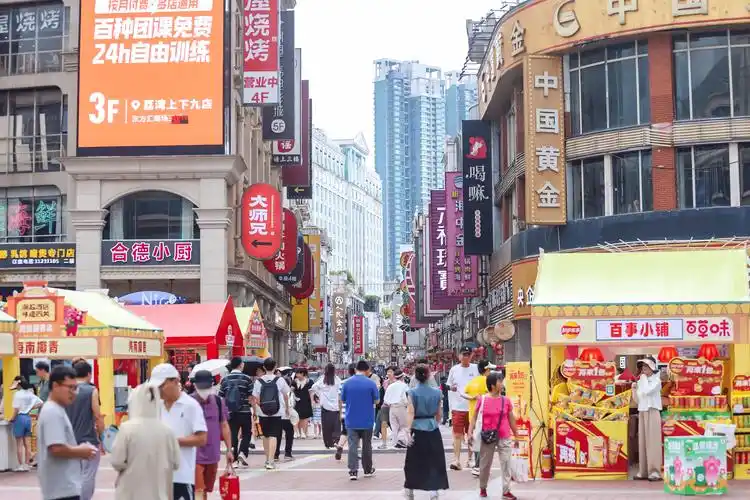What You Can’t Post in China: A Guide to Common Restrictions on Chinese Social Media (2025)
As China’s digital ecosystem continues to grow in sophistication, so does its regulatory landscape. Whether you're a global brand, indie artist, or content creator entering the Chinese market, understanding what not to post on social platforms is just as important as knowing how to go viral.
At Lotus Social Agency, we help global clients localize content for platforms like WeChat Channels, Douyin, RedNote (Xiaohongshu), and Kuaishou—and staying compliant is step one.
Below, we break down the most common content restrictions on Chinese social media and what they mean for your strategy.
1.Content That Challenges Political or Social Stability
One of the most strictly monitored areas is anything that could be seen as:
Criticizing the government or leadership
Spreading rumors or misinformation
Questioning the legitimacy of laws or national policies
Even subtle or unintentional references can trigger takedowns. Avoid:
Sensitive dates like June 4 (Tiananmen Square)
Comments about Xinjiang, Tibet, Hong Kong independence
Parodies of state figures or government logos
Best practice: Stay positive, culturally respectful, and avoid political commentary entirely.
2.Sexually Suggestive or Vulgar Content
Despite rising Gen Z creativity, China maintains strict rules around sexualized content—especially on platforms with younger audiences (Douyin, Bilibili, RedNote).
Restricted materials include:
Overly revealing clothing or close-ups of certain body parts
Suggestive dance moves or challenges (yes, even subtle ones)
Innuendo-heavy lyrics or memes
Even global artists or fashion brands have had content removed or blurred due to clothing choices or choreography.
Pro tip: What passes on TikTok may not pass on Douyin. Always re-edit and test content locally.
3.Violent or Dangerous Acts
China’s social platforms restrict content that contains:
Violence, gore, weapons, or blood
Dangerous challenges (e.g. climbing buildings, stunts)
Visuals of accidents or injuries—even for news purposes
This also applies to music videos and trailers: scenes that might pass in the West often get flagged or blurred on Chinese platforms.
4.Smoking, Alcohol, and Drug-Related Content
Brands promoting or visually featuring:
Smoking or vaping
Alcohol (especially being consumed)
Drug references (even implied)
...risk not only takedown but sometimes account suppression.
Even lifestyle brands and influencers must blur cigarettes or edit out drinks. Some platforms, like Xiaohongshu, have explicit community rules prohibiting alcohol-related gifting or seeding.
5.Supernatural, Religious, or Occult Themes
China has a long-standing restriction against “superstitious” or supernatural content. Commonly banned elements include:
Ghost stories or horror makeup
Tarot cards or fortune telling
Religious rituals (especially unlicensed ones)
Spells, witches, or “dark arts” content—even in fun or satire
Some horror-themed music, Halloween content, or makeup tutorials have been removed for violating this guideline.
6.LGBTQ+ Themes (with Nuance)
While not explicitly banned, LGBTQ+ content faces uneven enforcement across platforms. Soft depictions are allowed, but:
Romance or affection between same-sex individuals can be censored
Content framed as “lifestyle promotion” may be suppressed
LGBTQ+ pride or advocacy campaigns are often shadowbanned
If you're a brand wanting to support LGBTQ+ creators, work closely with a local agency to strike the right tone and maintain compliance.
7.Excessive Wealth Display
A relatively new restriction, platforms like Douyin and Kuaishou now limit:
Videos showing piles of cash, luxury watches, cars, or jewelry
“Flaunting” expensive purchases or extravagant travel
The policy is aimed at discouraging materialism, especially among youth. Even influencers are now careful to label luxury content as “inspiration,” not “showing off.”
8.Inaccurate Medical, Health, or Nutrition Claims
In the wellness, beauty, and parenting categories, content must follow strict rules around what you can claim:
No mention of “curing” diseases or replacing medical treatment
Claims like “detox,” “boost immunity,” “anti-cancer” often require medical certification
Testimonials about functional food must be tagged or qualified
Even skincare brands must soften claims like “remove acne overnight” or “anti-aging miracles.”
9.Children’s Content Rules
If your content features or targets children (like kids’ skincare, animation, or parenting tips), there are extra layers of regulation:
No depiction of child nudity, even in bathing content
No promotion of unhealthy food to minors
Kids under 14 are not allowed to livestream
Celebrity children’s privacy is strictly protected
WeChat Channels and Mango TV are commonly used by brands in this space—just be sure content adheres to platform-specific child safety guidelines.
10.Unauthorized Use of National Symbols or Culture
Using cultural symbols like:
The national flag or anthem
Government buildings
Military uniforms
...for marketing or parody can lead to fast takedown and backlash. The same applies to using traditional culture or ethnic costumes inappropriately.
If your campaign involves Chinese cultural elements, partner with a local agency to ensure respectful and compliant execution.
Penalties You May Face
Breaking the rules isn’t just about content removal. You may also face:
Shadowbans (content suppressed without notice)
Temporary or permanent bans
Blocked ad accounts
Blacklisting of your brand
Final Tips for Staying Compliant
✅ Work with local experts (👋 hello!)
✅ Test content before full rollout
✅ Stay updated with each platform’s T&Cs
✅ Monitor comments—some violations are user-generated
✅ Don’t copy-paste Western strategies
Compliance = Long-Term Trust
In China, compliance is not just about “avoiding trouble.” It’s a signal to platforms, partners, and users that you respect the rules and culture.
By understanding restrictions—and still creating content that resonates—you’ll build long-term success in the world’s most complex and exciting social media landscape.
Want to launch your brand in China without getting flagged? Lotus Social Agency is your bridge to localized, compliant, and viral-ready campaigns. Contact us for custom strategy, influencer support, and content localization across Douyin, WeChat Channels, Rednote, and beyond!


